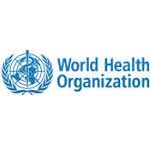OBJECTIVES OF THE PROGRAMME
The mission of WHO’s Health Emergencies Programme (The Programme) is to help countries, and to coordinate international action, to prevent, prepare for, detect, rapidly respond to, and recover from outbreaks and emergencies.
DESCRIPTION OF DUTIES
1. Co-develop the guidelines, tools, and indicators for effective disease surveillance at the national, subnational and community levels.
2. Coordinate and manage surveillance technical activities and programs, within the context of the outbreak and health emergencies program at the country level.
3. Facilitate the implementation of the International Health Regulations (IHR) including participation in the process of verification and risk assessment on reported public health events.
4. Strengthen the capacities of surveillance teams for the effective and sustained surveillance of epidemic prone diseases through training courses on field investigation, detection, data management, and rapid response to epidemics and health outbreaks.
5. Conduct, in collaboration with other team members, real-time analysis of outbreak intelligence data, from a broad range of sources including non-health sectors, for epidemic forecasting and detection.
6. Promote the effective coordination for rapid assessment, surveillance and response activities for epidemic-prone diseases in consultation with Country Office, Regional Office and HQ as well as local, regional and national health entities and other international health partners including UN agencies and NGOs.
7. Provide technical guidance for the management of a unified information system to ensure availability of core data country files and other information on related technical areas such as: case incidence; case management surveillance data; laboratory surveillance data; contact tracing, etc.;
8. Analyse, systematize, and disseminate scientific and evidence-based technical information and knowledge; support the development of the WHO Situation Reports, other related regular and ad-hoc surveillance reports.
9. Undertake regular field supervision visits to assess and evaluate the implementation of surveillance activities, identify gaps and recommend corrective actions based on key performance indicators.
10. Perform any other incident-specific related duties, as required by the functional supervisors.
REQUIRED QUALIFICATIONS
Education
Essential: First level university degree in epidemiology, statistics, database management or public health from an accredited/recognized institute.
Desirable: Advanced university degree in quantitative epidemiology or health related field. specialized training in communicable diseases.
Experience
Essential:: At least five years’ related experience in quantitative epidemiology and the implementation of public health surveillance, outbreak investigation and response in humanitarian settings.
Desirable: Prior humanitarian working experience at field level with WHO, other UN agencies, health cluster partners, recognized humanitarian organizations or with an international nongovernmental organization with expertise in disaster and outbreak response.
Skills
- Excellent knowledge of Microsoft Office applications.
- Working knowledge of online data collection applications, and statistical analysis packages (Stata, SPSS, etc).
- Working knowledge of GIS mapping software (or similar) would be an asset.
- Demonstrated knowledge of surveillance and monitoring systems as related to emergency response relief operations, complemented by skills in the field of epidemiological or statistical data collection, assessment, analysis and evaluation, and monitoring in a public health context.
- Proven ability to multitask across various planning and implementation processes within a highly demanding environment.
- Demonstrated knowledge, competency, and professional skills on the public health aspects of infectious disease control, epidemic and pandemic preparedness and response with particular attention to the application of an all-hazard approach in the context of the International Health Regulations and the use of event-based and indicator-based surveillance, as well as descriptive epidemiology and principles of public health in communicable disease surveillance and response.
WHO Competencies
1. Respecting and promoting individual and cultural differences
2. Producing results
3. Ensuring the effective use of resources
4. Teamwork
5. Communication
Use of Language Skills
Essential: Expert knowledge of English.
Desirable: Working knowledge of the local language(s )
REMUNERATION
WHO offers staff in the National Professional category an attractive remuneration package, which for the above position includes an annual net base salary starting at 145,847,000.00 shillings(subject to mandatory deductions for pension contributions and health insurance, as applicable) and 30 days of annual leave.


